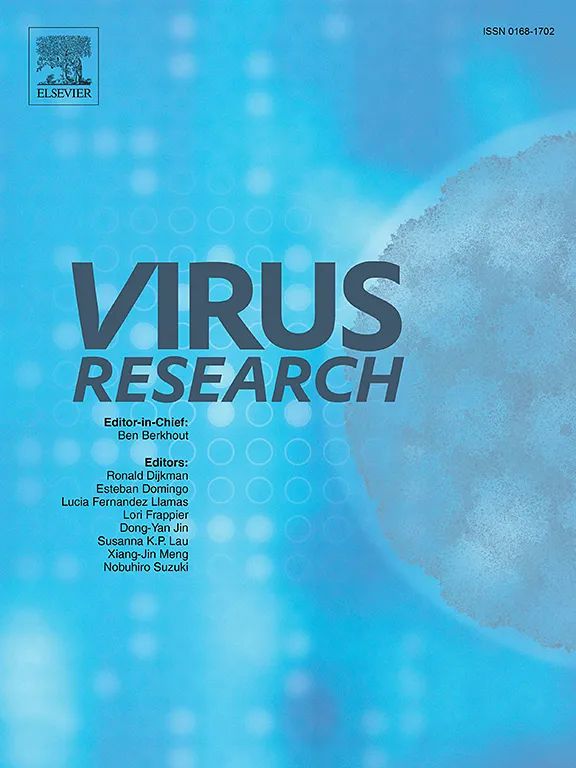Generation and characterization of infectious clones of chikungunya virus from an Indian strain as a resource towards chikungunya vaccine research
IF 2.7
4区 医学
Q3 VIROLOGY
引用次数: 0
Abstract
India has witnessed several devastating chikungunya virus (CHIKV) epidemics since 2005. Developing a stable reverse genetic system using Indian CHIKV strains will be paramount to studying the molecular mechanism of CHIKV pathogenesis.
We generated the first infectious clone (IC) of an Indian isolate of CHIKV and described the procedure in the present report. The IC was constructed directly using the isolate's RNA/cDNA and was further characterized after rescuing the virus. The IC exhibited characteristics similar to those of the natural isolate, such as cytopathic effect (CPE), plaque morphology, replication kinetics, and neutralization behavior. Using the same isolate, we also developed a stable IC with a reporter gene (mCherry) between double sub-genomic promoters. We further evaluated the feasibility of using this IC to test neutralization potential of CHIKV sera in 97 samples and observed that CHIKV patients’ samples from India were able to neutralize this IC significantly better than an Asian genotype IC.
With an impetus on vaccine and therapeutics development for CHIKV in recent years, the ICs generated through our study offer a powerful tool for evaluating several aspects of CHIKV pathogenicity and vaccine efficacy.
基孔肯雅病毒印度毒株传染性克隆的产生和特性分析,为基孔肯雅疫苗研究提供资源
自2005年以来,印度经历了几次毁灭性的基孔肯雅病毒(CHIKV)流行。利用印度基千伏病毒株建立稳定的反向遗传系统,对研究基千伏病毒发病的分子机制具有重要意义。我们生成了印度分离的第一个感染克隆(IC),并在本报告中描述了其过程。利用分离物的RNA/cDNA直接构建IC,并在挽救病毒后进一步表征。IC表现出与天然分离物相似的特征,如细胞病变效应(CPE)、斑块形态、复制动力学和中和行为。使用相同的分离物,我们还在双亚基因组启动子之间开发了一个具有报告基因(mCherry)的稳定IC。我们进一步评估了使用该IC检测97份CHIKV血清中和潜力的可行性,并观察到来自印度的CHIKV患者样本能够比亚洲基因型IC更好地中和该IC。随着近年来CHIKV疫苗和治疗方法的发展,通过我们的研究产生的IC为评估CHIKV致病性和疫苗功效的几个方面提供了强有力的工具。
本文章由计算机程序翻译,如有差异,请以英文原文为准。
求助全文
约1分钟内获得全文
求助全文
来源期刊

Virus research
医学-病毒学
CiteScore
9.50
自引率
2.00%
发文量
239
审稿时长
43 days
期刊介绍:
Virus Research provides a means of fast publication for original papers on fundamental research in virology. Contributions on new developments concerning virus structure, replication, pathogenesis and evolution are encouraged. These include reports describing virus morphology, the function and antigenic analysis of virus structural components, virus genome structure and expression, analysis on virus replication processes, virus evolution in connection with antiviral interventions, effects of viruses on their host cells, particularly on the immune system, and the pathogenesis of virus infections, including oncogene activation and transduction.
 求助内容:
求助内容: 应助结果提醒方式:
应助结果提醒方式:


